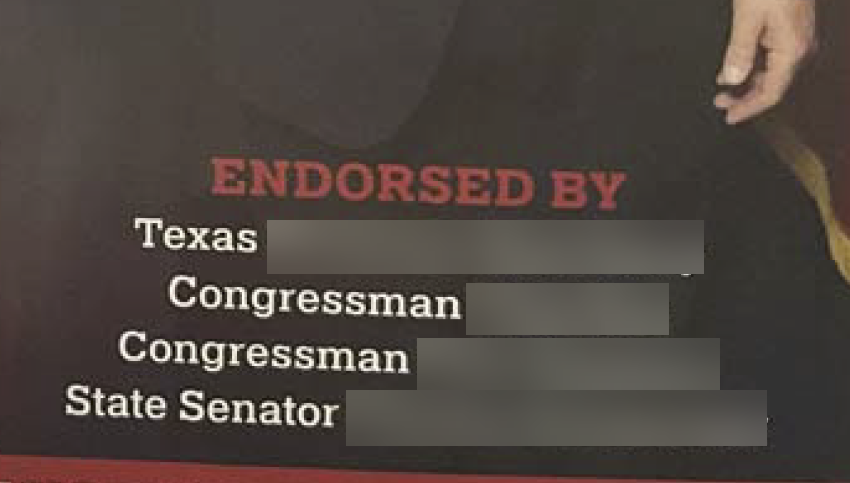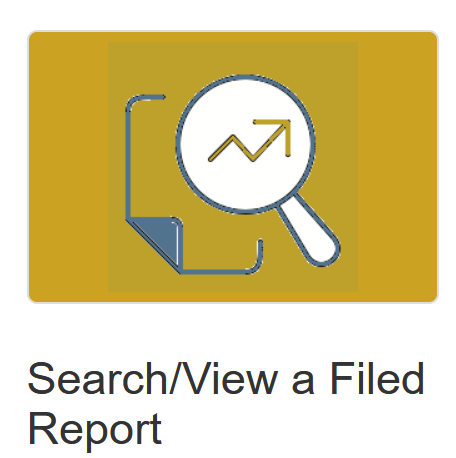Read Between the Lines
People collect things. I collect campaign literature. I have campaign literature going back probably 30 years. Some is good; some is awful; some is clever; some really, really boring. Some has colors that are just atrocious. Some was done with nary a thought for the low-vision user. Some is just evidence the candidate doesn’t know what they’re doing, or worse, why they’re running.
Campaign literature is sales literature. The candidate is selling you on why they’d be the best in the position. Here are my four rules when it’s campaign time: Don’t be fooled or swayed by photographs in the mailers; Know what the candidate can and cannot do in office; Read carefully; Find and research the legally required “paid for by”.
Rule #1: Don’t be fooled or swayed by photographs in the mailers.
Some candidates use photos of themselves with their families or children. Why? To tug at your heart strings… “Oh isn’t that cute!” Cute isn’t what you need from an elected official. Candidates need conviction and back-bone. They need to be strong, not sway the way the wind blows. They don’t need to be cute.
 Why do some of them use photos with famous elected officials? To make you think that person supports their candidacy. But do they? This is Monica Crowley and me a few years ago at a GOP event. Having a photo with her didn’t mean she endorsed my candidacy.
Why do some of them use photos with famous elected officials? To make you think that person supports their candidacy. But do they? This is Monica Crowley and me a few years ago at a GOP event. Having a photo with her didn’t mean she endorsed my candidacy.  The same is true of photos with Kellyanne Conway, Rudy Guiliani, Sarah Palin, Ken Paxton, Sid Miller, Governor Abbott and so many others with whom I’ve been photographed over the years. Photos with famous politicos, unless accompanied by the words “Endorsed by [name of person in photo]”, should be interpreted as manipulative, meant to make the candidate look important or to make the reader think that person has endorsed the candidate.
The same is true of photos with Kellyanne Conway, Rudy Guiliani, Sarah Palin, Ken Paxton, Sid Miller, Governor Abbott and so many others with whom I’ve been photographed over the years. Photos with famous politicos, unless accompanied by the words “Endorsed by [name of person in photo]”, should be interpreted as manipulative, meant to make the candidate look important or to make the reader think that person has endorsed the candidate.
A list of endorsements by others, but not the person in the photo, when used together is pure deception. Back to top
Rule #2: Know what the candidate can and cannot do in office.
Someone running for a legislative position cannot do anything without a majority vote of the body in which they serve (city council, TX House, TX Senate, US House, US Senate). They cannot fix the border or cut government spending. And usually, the executive (mayor, governor, president) has to sign any passed legislation to make it law.
Someone running for an executive position can only do that which the charter or constitution allows. And, a great deal of what is allowed requires a vote of the legislative body: budgets, capital spending for example.
This is called “checks and balances”.
When an incumbent running for re-election says they accomplished this or that, no they didn’t. They cast one vote for legislation to make that happen. Perhaps they swayed colleagues to do the same. But in the end, without a majority vote and a supportive executive, nothing they support will ever come to pass.
And, remember what position they’re running for… a mayor cannot close the border, fund medicare or fix social security issues. A congressman can’t get local roads paved. Back to top
Rule #3: Read carefully
Beware the use of “conservative”. Does a true conservative support Democrat chairs in the legislature? Does a true conservative celebrate being endorsed by staunch Democrats? Does a conservative group endorse candidates who previously voted Democrat?
There’s a big difference between “voted to close the border” and “closed the border” but you’ll see both on campaign literature.
“Most experienced” is something else you’ll often see. If you don’t know what the requirements of the position include, how will you evaluate “most experienced”? If the person has always been a chief executive, but is running for a legislative position, that person probably does not have the requisite experience. A chief executive calls the shots. A legislator must count votes for bill passage and must sway a majority to his/her line of thinking. These are very different skill sets. Back to top
Rule #4: Find and research the legally required “paid for by”
All campaign advertisements must include who paid for them. This is critical to know. Did the candidate (well, actually, the candidate’s donors) pay for the mailer? Did some PAC (political action committee) pay for it?
If a PAC paid for it, ask yourself what that PAC expects to get for the expenditure of funds. Mailers are very expensive: design, printing, mailing costs. A county-wide GOP mailer can easily cost $5,000.
Do an online search for the PAC itself and see what it’s about. Go to OpenSecrets.org for Federal PACs and see who else got money from that PAC. Go to Texas Ethics Commission (TEC) for State PACs.
This is also true of the various emails requesting money. Where’s it going? Watch carefully. Sometimes something will appear to be for a candidate, but the money you donate is going elsewhere. Be careful! Back to top
The Value (or not) of Endorsements
Candidates love to share their endorsements. Why? They believe you’ll find a name among that list that you admire, and thus will vote for that candidate.
But should you? My husband, who has also been involved in the political world for many, many years, says “Endorsements are only good on the back of a check.” I agree.
What difference does it make if a beloved former (or current) governor or legislator, or well-known local, endorses a current candidate? That “former (or current)” or “well-known” won’t be serving in office. They don’t vote. The candidate, once an officerholder, does.
Will that former or current elected official, or well-known local, have significant influence over the actions and votes of the candidate? Will that endorser’s influence exceed that of the voters? Yes, it will. And, if campaign contributions flow from that endorser, my “yes” is iron-clad.
 Don’t be awed by endorsements. Rather, ask yourself, “If that endorser opposed a measure I support, who’s opinion would the candidate (now officeholder) weigh more heavily?” When it comes to a vote and the chips are down, if donations are involved, the endorser wins, the voters lose. It’s rarely the other way around.
Don’t be awed by endorsements. Rather, ask yourself, “If that endorser opposed a measure I support, who’s opinion would the candidate (now officeholder) weigh more heavily?” When it comes to a vote and the chips are down, if donations are involved, the endorser wins, the voters lose. It’s rarely the other way around.
The TX House vote to impeach Ken Paxton is but one example. All but 5 Republicans who took money from Dade Phelan voted to impeach: 49 of them. Did that accurately reflect the wishes of their constituents? Not likely.
Another example: Let’s say managing excessive growth is your highest priority (as it is for many in Bastrop County). Along comes a candidate’s literature stating that they are endorsed by major residential and commercial developers or a law firm that makes a good deal of its money from representing developers or a real estate PAC or an entity with which they have a business relationship.
Once in office, will that candidate vote with the wishes of his/her constituents or the endorser? What if that endorser helped fund the campaign? You know the answer.
The only caveat in this is if you research the endorser’s background or votes during his/her term of office and find you’re majorly in agreement with the endorser’s stands on current issues. But you must do that research specifically regarding current issues. I repeat: current issues. A good example of this is a Trump endorsement.
It means nothing if you agreed with that endorser’s stand on the war in Iraq, but disagree with his/her current stand on school choice, casino gambling, water, immigration or any other issue facing the county or state.
And remember, current elected officials who endorse often have their own agendas: which candidate can or will help me the most when I run for re-election or which candidate is likely to win, making me look like a winner?
The only endorsement worth anything is that of the voters, your endorsement. You have the power. Don’t be swayed by a list of allegedly important names.
Conservative? Maybe not.
Online Research Often Exposes The Truth.
MAGA matters and those running for office know it. That’s why candidates, mostly Republican but frankly of both parties, claim to be “conservative”.
 But, voter beware. Just because they say they’re conservative, they aren’t. They easily toss around the word “conservative” knowing that low-information voters are swayed by it. So, become a high-information voter using online resources!
But, voter beware. Just because they say they’re conservative, they aren’t. They easily toss around the word “conservative” knowing that low-information voters are swayed by it. So, become a high-information voter using online resources!
They hope you don’t do your homework. I hope you do. There are many places to get information about a candidate. Campaign literature and websites are not places to go except to learn what the candidate wants you to know. To get to the truth, you must do some research.
Watch what they do, not what they say. I’ve said this for a long time about candidates, something I’ve learned through my 35+ years involved in political campaigns. People can say anything, but they can’t change the record.
Candidates can modify their social media posts, but few are likely to do that unless their comments become big news. Think of candidates and/or office holders that have been caught by salacious or offensive posts. You can learn a lot by a quick scan of someone’s posts. If they’re on X (formerly known as Twitter), that’s the best place to take a quick scan.
 Candidates and office holders likely have to file financial reports with either the local election office or the Texas Ethics Commission or the Federal Elections Commission. Visit BastropVotes for local candidates. Visit the Texas Ethics Commission for district, judicial, or statewide candidates. Texas Ethics also has contributor information about Texas Political Action Committees (PACs). Visit the Federal Elections Commission for all federal candidates. A non-governmental source to “follow the money” is opensecrets.org where you can search by candidate, committee, or by donor. Open Secrets also has information about “dark money” groups, Super PACs and more.
Candidates and office holders likely have to file financial reports with either the local election office or the Texas Ethics Commission or the Federal Elections Commission. Visit BastropVotes for local candidates. Visit the Texas Ethics Commission for district, judicial, or statewide candidates. Texas Ethics also has contributor information about Texas Political Action Committees (PACs). Visit the Federal Elections Commission for all federal candidates. A non-governmental source to “follow the money” is opensecrets.org where you can search by candidate, committee, or by donor. Open Secrets also has information about “dark money” groups, Super PACs and more.
If a candidate is an incumbent, their votes will tell you whether they’re actually a conservative or not. For Texas legislators, Texas Legislature Online is chock full of information. For a Texas legislative ranking, visit Mark Jones’ analysis in the Texas Tribune or The Freedom Index where individual legislators can be searched. For US Congressmen & Senators, visit FreedomWorks for an analysis of their voting records.
For example, my Texas legislator received one 50% ranking. How good is that? Prior to casting my vote, I’ll compare it to other rankings and any opponents. My US Representative has a session ranking of 100%, and a lifetime ranking of 94.4%. I doubt any opponent can beat that!
For those running the first time, keep an eye on their financial reports. “Follow the money” is always true in politics. Search online, especially LinkedIn for bios which will include volunteer and employment histories.
Always look at a candidate’s past voter history. See if it’s published on one of your local GOP club websites. If you can’t find it online, then ask your local GOP chair for the information.
If you can find the name of a candidate’s treasurer or campaign chair, search them as well. People typically take these roles for candidates who are like-minded and who the treasurer and chair want in office. You won’t find too many Republicans serving as campaign chairs or treasurers for liberal democrats, and vice versa.
Your vote is critical to the survival of our nation. If you, like me, consider yourself a conservative and vote accordingly, then do your job. Do your homework. Know before you go!
